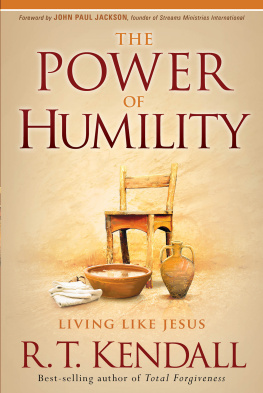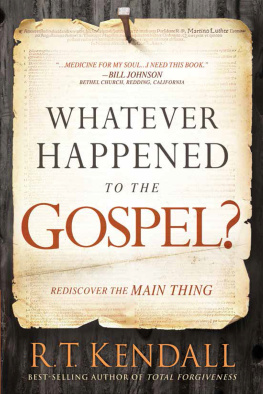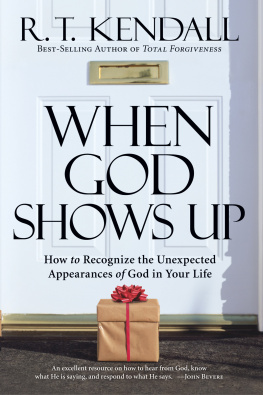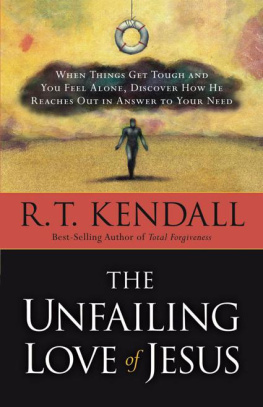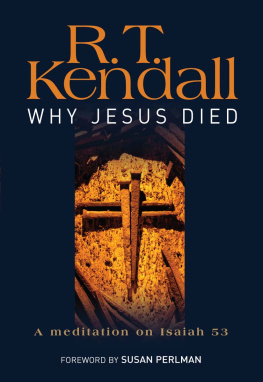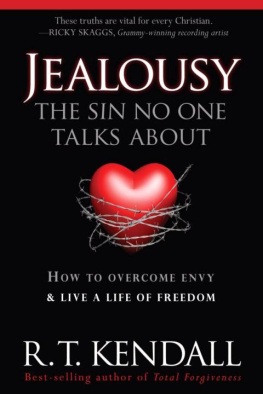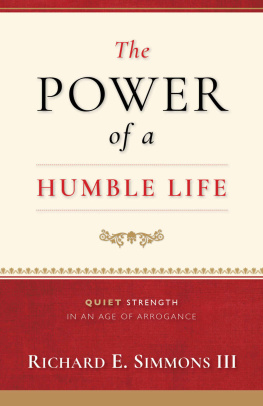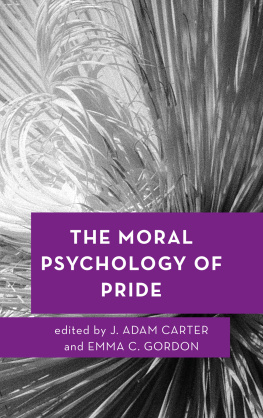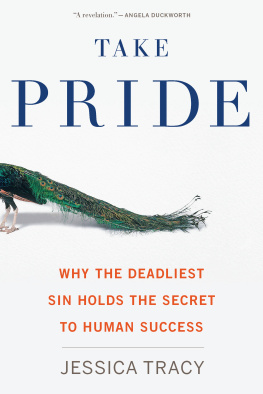1
TAKING OURSELVES TOO SERIOUSLY
I am the only one of the LORDs prophets left. I have
been very zealous for the LORD God Almighty.
1 KINGS 18:22; 19:14
There is no limit to how far a person can go as long
as he doesnt care who gets the credit for it.
A PLAQUE ON PRESIDENT RONALD REAGANS DESK
A MEASURE OF PRIDE is essential to our self-esteem, emotional well-being, and good mental health. It is what gives us a sense of self-worth and dignitywhich God wants each of us to have. We need to take ourselves seriously to some extent. But pride can push this too far as when we begin to take ourselves too seriously. In chapter 2 we will look at the good side of prideits advantages to us and why it is not always bad. In this chapter, however, we will examine pride as it is generally understood in the Bible. As I said above, the Bible has nothing good to say about pride. Pride in Scripture is always that which is suspect and to be avoided; it is disdained. It is assumed in the Bible as arrogance, haughtiness, smugness, a feeling of superiority over others, insolence, overbearingness, superciliousness, narcissism, vainglory, conceit, egotism, vanity, and self-importance.
Pride is the opposite of humility, modesty, and meekness. St. Augustine (A.D. 354430) said that pride is the love of ones own excellence. People like Aristotle (384322 B.C.) and George Bernard Shaw (A.D. 18561950) saw pride as a profound virtue. I often quote myself, said Shaw. It adds spice to my conversation. He also said, Few people think more than two or three times a year; I have made an international reputation for myself by thinking once or twice a week.
Most religions of the worldcertainly Christianitysee pride as a sin. There are two Greek words relevant here. Alazon (as in James 4:16; 1 John 2:16; Romans 1:30) refers to one who makes more of himself than reality justifies, ascribing to himself either more or better things than he has, or even what he does not possess at all; he promises what he cannot deliver. The other Greek word is huperephanos (as in Mark 7:22; James 4:6, 1 Peter 5:5), which means arrogance. It refers to one who brags about his position, power, and wealth and despises others. In 2 Timothy 3:2 both alazon (boastful) and huperephanos (proud) are found beside each other.
ELIJAH
We will see throughout this book that neither word for pride needs be used explicitly to describe a persons proud behavior. For example, the writer of 1 Kings did not impute Elijah with pride. But that is what was going on. How dare Elijah say, I am the only one of the Lords prophets left (1 Kings 18:22; 19:14)even if it were true! But it was absolutely false. Elijah had just been told that Obadiah the prophet had taken a hundred other prophets and hid them in caves (1 Kings 18:13). Elijah felt so superior to the other prophets of his day that he did not even acknowledge them as prophets of the Lord! That is sheer arrogance. Elijah is a perfect example of a person taking himself too seriously.
Could the revered and hallowed Elijah truly take himself too seriously? Yes. Is not Elijah regarded as one of the greatest men in the Old Testament? Yes. Did his prayer before all the people not result in fire coming down from heaven and exposing the folly of the prophets of Baal? Yes. Was it not Elijah who appeared with Moses when Jesus was transfigured before the disciples on the mountain (Matt. 17:3)? Yes. And when Elijah said, I am the only one of the Lords prophets left, God could have aborted the whole procedure because Elijah misspoke (to put it mildly). But God didnt do that.
This encourages me. James wanted his readers to know that Elijah was a man with a nature like ours (James 5:17, ESV). The point is, if God could use Elijahand if Elijah can get his prayers answered, so too with any of us! God can use those of us who take ourselves too seriously. In the final chapter of my book In Pursuit of His Glory, I listed five things I would hopefully do differently if I could turn the clock back after twenty-five years at Westminster Chapel. This list included that I should not take myself so seriously.
I therefore define pride essentially as taking oneself too seriously. Taking oneself too seriously is the common denominator in all proud people. It describes those who resent criticism, who are insecure, who cannot laugh at themselves, whose need of praise is constant, who see themselves as overly important, who fancy themselves as being very special to God (and think God bends the rules for them), who tend to blame others for their problems, who hate taking the blame, who cannot bear not getting the credit for the good they did, and who have an insatiable need to prove themselves.
Is that you? Take heart. I just described virtually every person whom God has ever used.
CATEGORIES OF PRIDE
But pride takes many forms. Some try to prove they are not proud by trying to appear the very opposite. Pride perceiving humility honorable often borrows her cloak, said Benjamin Franklin (17061790). It goes down better with people if we seem humble. The motive is the same: we are concerned how we are perceived. Our self-esteem is at stake.
There are many kinds of pride. There is social pride (keeping up with the Joneses), spiritual pride (self-righteousness), financial pride (impressing others with ones wealth), political pride (being sure to be politically correct), sexual pride (always needing to attract the opposite sex), cultural pride (impressing people with your love of the arts), pride of pedigree (placing importance on ones background), educational pride (impressing with degrees), intellectual pride (always needing to prove how much you know and how intelligent you are), pride of your good looks (overly concerned with appearance, whether regarding dress, figure, or hair), national pride (sometimes being overly patriotic), or racial pride (proud of the color of your skin). There is even theological pride, when one feels superior because of their rightness of doctrine. Closely akin to this is prophetic pride, when one gloats over their prophetic successes.
GOD HATES PRIDE
What must never be forgotten is that God hates pride. There are six things the Lord hates, seven that are detestable to him: haughty eyes [a proud lookKJV], a lying tongue, hands that shed innocent blood, a heart that devises wicked schemes, feet that are quick to rush into evil, a false witness who pours out lies and a man who stirs up dissension among brothers (Prov. 6:1619). Note that haughty eyes or proud look heads the list of things God hates. Whoever has haughty eyes and a proud heart, him will I not endure (Ps. 101:5). Have you ever seen someone with a proud lookhaughty eyes? I have. Certain people literally come to my mind when I think of haughty eyes and an arrogant countenance. But who am I to judge? You and I look on the outward appearance; God looks at the heart (1 Sam. 16:7). So, have I too had the same outward proud expression I have seen in some when in fact people have had the exact same perception of me? I dont think I want to know the answer to that question.
When we consider how much God hates our being proud, it is enough to drive us to our knees. We should ask, Lord, am I like this? You save the humble but bring low those whose eyes are haughty (Ps. 18:27). God opposes the proud but gives grace to the humble (1 Pet. 5:5). Everyone who exalts himself will be humbled (Luke 14:11). You rebuke the arrogant (Ps. 119:21).
But when I consider that God was patient with Elijah, I feel there is hope for me. God could indeed have stepped in and interrupted the entire proceedings when Elijah openly said, I am the only true prophet left. But He didnt. God took His time and later on called Elijah to one side, as if to say, Oh, by the way, Elijah, I have seven thousand in Israel whose knees have not bowed down to Baal. (See 1 Kings 19:18.) God has used me over the years and then later called me to one side and gently showed me faults and flaws others saw but I had been blind to. He is such a good and gracious God.
Next page
